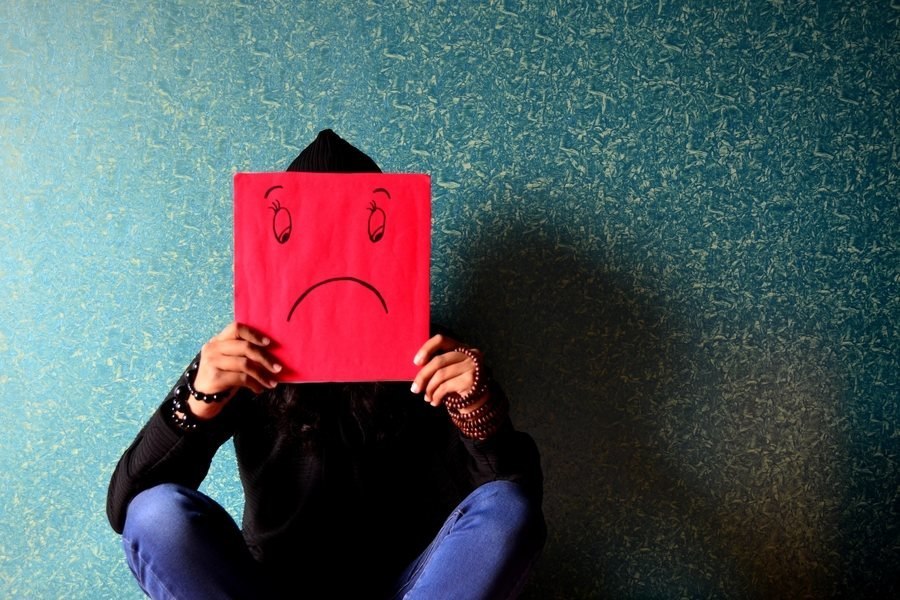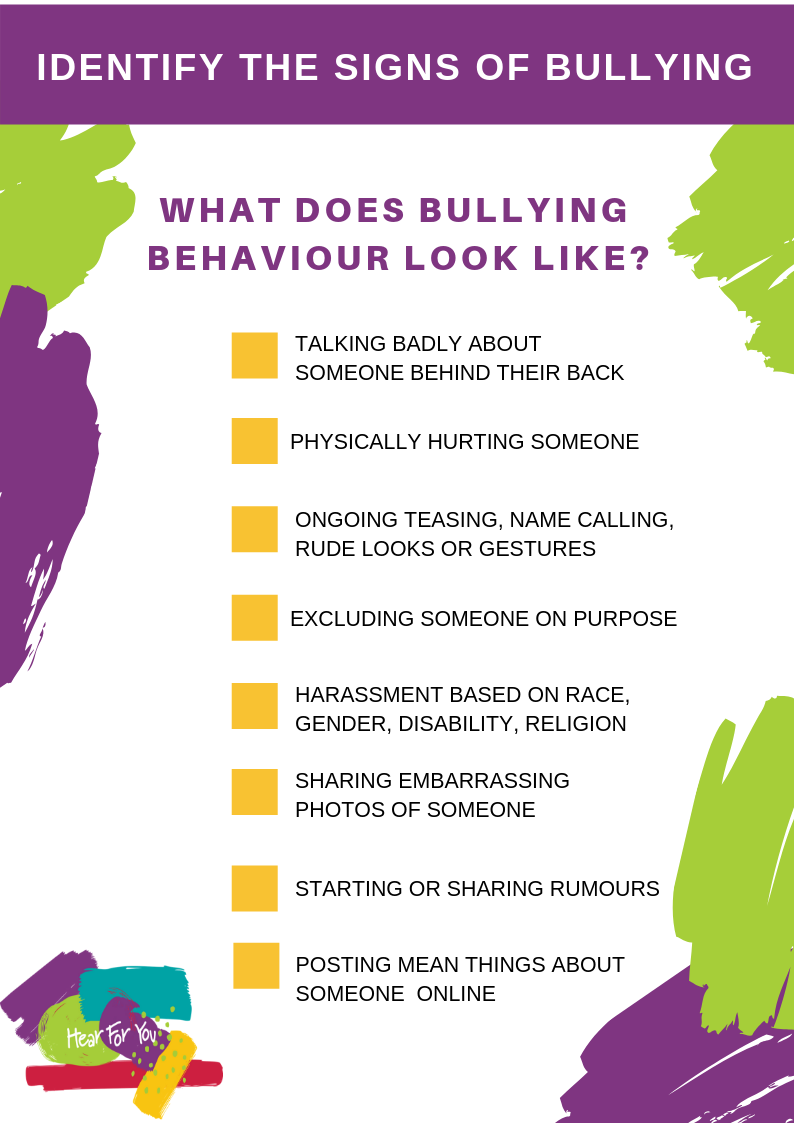
Any kind of bullying behaviour is not ok. When you’re young and carefree it can be hard to see the signs. If someone is repeatedly using words or actions to hurt you then this is bullying.
You like to think that your friends have your back, but sometimes they don’t. When you trust someone it can be hard to see the signs for what they are. It’s not just about not liking someone, or having a fight or disagreement. Conflict will happen. It’s more about repetitive behaviour. Is someone acting towards you in a way that makes you feel hurt, uncomfortable or anxious? If yes, then trust your gut instinct. Take some time to break that feeling down and work out what you need to do about it.
Here are some signs that reflect bullying behaviour:
- Verbal – teasing, name calling, putting someone down, threatening to hurt someone, making fun of someone’s race, religion, sex or a disability
- Physical – hitting, slapping, pushing, tripping, making faces, or rude gestures
- Social – sharing embarrassing photos of someone else, excluding or intentionally leaving someone out, embarrassing someone in public
- Cyber – ganging up on someone online, sharing rumours, stalking, constant messaging, adding hurtful or embarrassing pictures.
If any of the above behaviours are happening to you on a regular basis then it really is not acceptable. But what can you do? If you do nothing then the bullying behaviour can start affecting other areas of your life. It can lead to:
- poor sleep
- feeling sick
- feeling worried or anxious
- lower your self esteem and confidence
- feeling afraid and unsure
- feeling alone, sad, lonely, confused.
Bullying exists when someone repeatedly uses words or actions to hurt you
None of this sounds good, does it? So what can you do if you feel like you might be a victim of bullying behaviour? You can:
- Stay away from the people who make you feel this way
- Ignore the bullying and don’t bully back
- Tell them what they are doing is not ok
- Speak to a good friend, teacher, parent, or trusted adult and explain how you’re feeling
- Remember that this behaviour reflects them, not you.
Dan Talks About How He Managed To Overcome A School Bully
Watch our video to see how Dan, one of our Queensland mentors, dealt with bullies during high school.
Use our Checklist As A Guide To Recognise The Signs of Bullying
You can download this checklist here: Identifying Bullying Behaviour




